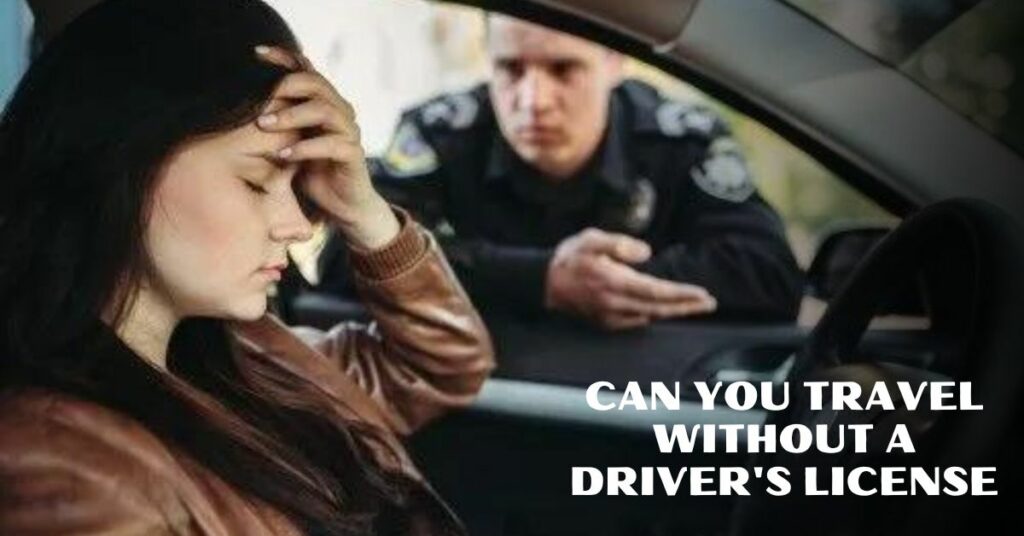As a solo traveler, I’ve often found myself spending more money on my trips than my friends who travel in groups. It’s frustrating to see how much they save by splitting the costs while I have to bear the burden of expenses alone. But why is it more expensive to travel alone? After years of traveling solo, I’ve come to realize that there are several factors that contribute to this expense.
Firstly, as a lone traveler, I miss out on cost-sharing opportunities that come with group travel. Friends can split the cost of transportation or accommodation, but when you’re traveling alone, you have to pay for everything yourself.
Additionally, single supplement fees charged by hotels and tour operators can be significantly higher than what groups pay per person.
In this article, we’ll explore these reasons and others in depth and share strategies for saving money while traveling solo.
Lack of Cost-Sharing Opportunities
It’s tough to split the bill when you’re flying solo, leaving you with a sense of missed opportunities and a lighter wallet. One of the main reasons why it’s more expensive to travel alone is because there aren’t as many cost-sharing opportunities available.
When you’re traveling with friends or family, you can split the cost of accommodations, meals, transportation, and activities. However, when you’re traveling alone, all those costs fall on your shoulders. For example, sharing a hotel room with someone else can cut your accommodation costs in half. But if you’re on your own, you have to pay for the entire room yourself. The same goes for transportation; car rentals and taxis are cheaper when shared with others. And let’s not forget about food – ordering dishes to share at restaurants is a great way to save money while trying new things.
Unfortunately, these cost-saving measures simply aren’t possible when traveling alone. This lack of cost-sharing opportunities can quickly add up and make solo travel more expensive than group travel. As a solo traveler myself, I’ve learned that it pays off to be strategic about where I choose to spend my money. But even then, I still find myself paying higher prices than I would if I were traveling with others.
With this first subtopic covered, we now move on to the next reason why traveling alone tends to be more expensive: higher single supplement fees. While some hotels and tour operators offer discounts for groups or couples sharing rooms/activities/etc., they often charge single travelers extra fees for occupying the same amount of space/resources/etc..
Higher Single Supplement Fees
You’ll be hit with a surcharge for flying solo, like an unwelcome guest crashing a party. This is because many hotels and tour operators charge higher single supplement fees to cover the cost of one person occupying a room or participating in an activity that is designed for two.
I once traveled alone to Bali, Indonesia, and was surprised to find that my hotel charged me double the price of what my friends paid when they shared a room. Single supplement fees can range from 10% up to 100% of the regular price. This means that if you’re traveling on a budget, you may have to sacrifice some comfort or convenience to save money. For example, you may have to stay in dorms instead of private rooms or choose activities that don’t require minimum group sizes.
However, there are ways to avoid paying single supplement fees altogether. Some tour operators offer roommate matching services where they pair solo travelers together based on their preferences and interests. Alternatively, you could plan your own itinerary and book accommodations that don’t charge extra for single occupancy. It takes more effort and research but it’s worth it if you want to save money on your travels.
If you’re traveling alone for the first time, safety concerns may be at the top of your mind.
Safety Concerns
If traveling solo for the first time, safety may be a primary concern to consider. I’ve experienced this firsthand during my travels alone. Being alone in unfamiliar territory can make one vulnerable to pickpockets and other potential dangers. As a result, it’s essential to take necessary safety precautions and remain vigilant.
One way to ensure safety while traveling alone is by staying in safe accommodations such as hotels with good reviews or hostels that offer private rooms. It’s also crucial to avoid walking through dark alleys or isolated areas at night and instead stick to well-lit streets. Additionally, researching the local customs and laws can help avoid any unintentional violations that could lead to legal trouble.
However, ensuring personal safety often comes at an additional cost when traveling alone. Many tour operators charge extra fees for single travelers due to the added cost of ensuring their safety and well-being on the trip.
This brings us to another disadvantage of solo travel – limited bargaining power when it comes to prices and deals, which we’ll explore in the next section without further ado.
Limited Bargaining Power
Solo travel can sometimes leave you feeling like a helpless puppy in the face of prices and deals, with limited bargaining power that can make you feel as small as an ant. When traveling alone, I’ve found that it’s harder to negotiate prices for tours or activities because I don’t have the leverage of a group discount. Vendors know that solo travelers may be willing to pay more just to have someone to share the experience with.
In addition, many accommodations cater specifically to groups or couples, leaving solo travelers with limited options. Solo-friendly hostels and hotels tend to be more expensive since they often offer amenities such as single rooms or private bathrooms. As a result, I’ve had to shell out more money for accommodations than I would if I were traveling with at least one other person.
Overall, limited bargaining power is just one of the many factors that contribute to higher costs when traveling alone. In the next section, we’ll explore how even finding solo-friendly accommodations can come at a premium price.
Higher Costs for Solo-Friendly Accommodations
Finding accommodations for solo travelers can be a challenging and frustrating experience, as many places cater to couples or groups and may not offer the amenities you need, leaving you feeling isolated and left out.
Solo-friendly accommodations often come with a higher price tag due to the cost of maintaining single rooms, which is understandable from a business perspective. However, this can make it difficult for solo travelers on a budget to find suitable accommodations.
In my experience traveling alone, I’ve found that some hotels charge an additional fee for single occupancy rooms, while others simply don’t offer them at all. This means that as a solo traveler, I’m forced to pay more for my accommodation than if I were traveling with someone else.
Additionally, some hostels and shared accommodation options may require guests to book multiple beds in one room or share communal spaces with strangers which may not be ideal for everyone.
While there are certainly benefits to traveling alone such as freedom and flexibility in your itinerary, the financial burden of finding suitable accommodations can add up quickly. Limited access to group discounts only exacerbates this issue further.
However, there are ways around these challenges such as booking well in advance or using travel rewards programs which may offer discounts on certain accommodations.
Limited Access to Group Discounts
As a solo traveler, I’ve experienced firsthand how difficult it is to access group discounts for tours and activities. Many tour companies offer discounted rates for groups of two or more, leaving those who travel alone with higher costs.
Additionally, transportation expenses can add up quickly when traveling alone, as there are no cost-sharing opportunities with others. It’s important to budget accordingly and research ways to save on these expenses before embarking on any solo travel adventures.
Tour and Activity Costs
You’ll quickly realize that partaking in tours and activities on your own can be quite a drain on your wallet, with prices that may leave you feeling like you’ve just been robbed blind. Many tours and activities have minimum participant requirements, meaning that they offer lower prices for groups of people who book together. As a solo traveler, you won’t benefit from these discounts and will end up paying full price.
Additionally, some tour operators charge a ‘single supplement’ fee for solo travelers booking accommodations or activities. This fee is often added because the operator is losing out on the potential revenue they would have received if two people were sharing a room or participating in an activity together.
Despite these extra costs, I still highly recommend experiencing tours and activities while traveling alone. Not only do they provide opportunities to learn about local culture and history, but they also give you a chance to meet other travelers who share similar interests. Plus, many adventures are simply more enjoyable when shared with others!
That being said, it’s important to budget accordingly when planning your trip so that you can afford these experiences without breaking the bank. Speaking of budgeting – let’s talk about transportation expenses next!
Transportation Expenses
Getting around can be a major expense for solo travelers, so it’s important to plan your transportation budget wisely. When you’re traveling alone, you don’t have the option of splitting the cost of a rental car or taxi with someone else. This means that transportation costs can add up quickly, especially if you’re moving from place to place frequently.
One of the biggest challenges I faced when traveling solo was figuring out how to get around without breaking the bank. Public transportation is often a great option for budget-conscious travelers, but it can be confusing and overwhelming in some cities. Ride-sharing services like Uber and Lyft are convenient, but their prices can vary widely depending on where you are and what time of day it is.
Ultimately, I found that a combination of public transportation and walking worked best for me in most places.
While there’s no one-size-fits-all solution for saving money on transportation while traveling solo, there are some strategies that can help keep your costs down.
Strategies for Saving Money While Traveling Solo
When I travel solo, I always look for ways to save money without compromising my experience.
One of the strategies that’s worked for me is traveling during the off-season when airfare and accommodation rates are lower.
Another way is by using travel rewards programs to earn points and redeem them for flights or hotel stays.
Lastly, staying in budget accommodations such as hostels or Airbnb has also allowed me to cut down on lodging expenses while meeting new people from all over the world.
Planning ahead for activities and transportation can also help me avoid last-minute expenses and unexpected fees.
Traveling During Off-Season
Traveling in the off-season can be a real steal, with prices dropping to rock-bottom levels! I remember when I went on a solo trip to Europe during the winter months and was able to snag some amazing deals on airfare, accommodations, and activities.
Not only did I save money, but I also avoided the crowds of tourists that usually flood popular destinations during peak season. This allowed me to have a more authentic experience and connect with locals without feeling like just another tourist.
If you’re looking to travel alone but are worried about breaking the bank, consider planning your trip during the off-season. You’ll not only save money but also have a chance to experience your destination in a unique way. And if you’re really savvy, you can even use travel rewards programs to get additional discounts and perks on your trip!
Using Travel Rewards Programs
As I mentioned earlier, traveling during off-season can be a great way to save money on your trip. But what if you don’t have the luxury of choosing when to travel? That’s where using travel rewards programs comes in handy.
I’ve personally used travel rewards programs to help me save money on solo trips. These programs allow you to earn points or miles for every purchase you make, which can then be redeemed for free flights, hotel stays, and more. By using these rewards, I’ve been able to offset some of the extra costs associated with traveling alone and even splurge on experiences I might not have been able to afford otherwise.
So if you’re planning a solo trip and want to save some cash, consider signing up for a few travel rewards programs and start earning those points!
And speaking of saving money, another way to stretch your budget when traveling alone is by staying in budget accommodations.
Staying in Budget Accommodations
Looking to make the most of your solo travels without breaking the bank? Consider staying in budget accommodations for a comfortable and affordable stay.
As a solo traveler, I’ve found that staying in budget accommodations such as hostels or guesthouses not only saves me money but also provides an opportunity to meet other travelers from around the world.
Hostels offer dormitory-style rooms with shared bathrooms, which may not be everyone’s cup of tea, but they also have private rooms available at a fraction of the cost of traditional hotels.
Guesthouses are another great option for budget-conscious solo travelers looking for affordable accommodation that provides privacy and comfort.
Staying in budget accommodations has allowed me to extend my travels longer than if I were staying exclusively in expensive hotels. By saving money on accommodation, I can spend more on activities and experiences during my trip.
Planning ahead for activities and transportation is crucial when traveling alone.
Planning Ahead for Activities and Transportation
After settling down in my budget accommodations, I knew it was time to plan for the activities and transportation during my solo travel. As a seasoned traveler, I know that planning ahead is key to saving money and getting the most out of my trip.
Firstly, I researched online for discounted tickets or passes for tourist attractions such as museums, theme parks, and tours. By purchasing these in advance, I was able to save a significant amount of money compared to buying them on-site.
Additionally, I made sure to research public transportation options such as buses or trains instead of opting for expensive taxis or private transfers. Not only did this save me money, but it also gave me the opportunity to experience local culture and interact with locals.
Planning ahead allowed me to have an itinerary that fit my interests and budget while maximizing my time exploring the destination on my own terms.
Conclusion
In conclusion, traveling alone can be more expensive due to lack of cost-sharing opportunities, higher single supplement fees, safety concerns, limited bargaining power, and higher costs for solo-friendly accommodations. However, there are strategies for saving money while traveling solo.
For instance, staying in hostels or using Airbnb instead of hotels can be more cost-effective. Additionally, taking public transportation or walking instead of using taxis can save a considerable amount of money.
Personally speaking, I’ve experienced the challenges of traveling alone. On one occasion, I had to pay a high single supplement fee on a cruise because I didn’t have anyone to share my cabin with. However, I was able to save money by booking tours and activities through group discount websites like Groupon.
Furthermore, I found that dining at local restaurants rather than touristy ones saved me money while also giving me an authentic cultural experience.
Overall, while there may be some added expenses when traveling alone, it’s still possible to travel on a budget with some planning and research. Don’t let the fear of expenses discourage you from embarking on your own solo adventure – there are ways to make it work!

Meet Scott Robinson, a seasoned traveler with 28 countries under his belt, has immersed himself in diverse cultures around the world. His articles are a window into the rich tapestry of traditions, customs, and local flavors he has encountered on his globetrotting escapades. Scott’s deep appreciation for the beauty of cultural diversity shines through his writing, allowing you to embark on a virtual journey that celebrates the vibrant mosaic of humanity.


